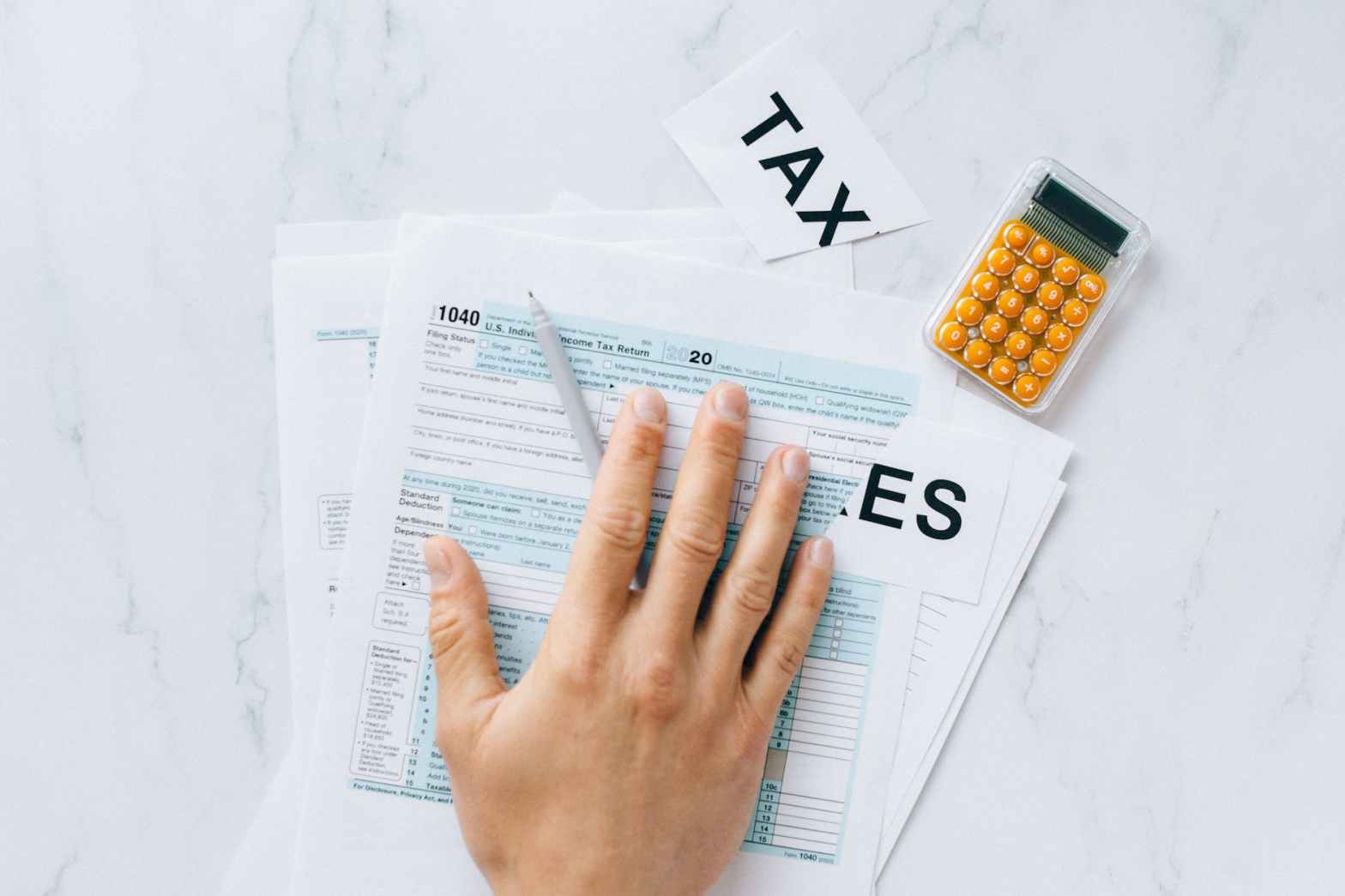
With the passing of each Financial Year, the period from April to June or July, many Tax Payers especially the Salaried Class are perplexed with too many Forms and Documents to be collected and reconciled so as to avoid any defects or any penalty or fine on top of their tax liability or to claim any refund. Having crossed the last date for filing of income tax returns, being 31st July’2023 it is time for professional accountants like us to find ways of comforting these tax payers.
In order to have a hassle free filing of Income tax returns, Tax Payers are expected to have a sound Tax Planning as early as by April of each Year rather than waiting for the IT Dept. to announce Tax Reliefs on their Taxable Income and end up with minimal benefits.

With the Government of India as well as the Income Tax Authority introducing a New Tax Regime so as to make it simple and beneficial to the Tax payers by way of reduced Tax Liability, it is for the Tax Payers to make use of the same.k
By now most of the Tax payers are aware that they are bound to get Full tax Rebate for an Income of up to Rs.7 Lakhs under the New Tax Regime, as against Rs.5 Lakhs at present, still there is a gloom of suspicion that they are not able to press Chapter VI or Section 80 Deductions, which needs to be clarified as they are bound to reap much harvest by way of Savings in the years to come.
Let us take up some of the nuances of ITR Filing for the Current Assessment Year which is likely to be closed by 31st July’2023 without any Penalty or Fines or Interest u/s 234 A/B or C.
The selection of the right ITR Form from ITR1 to ITR5 going with the type of Assessee, whether an Individual or HUF or a Corporate Entity along with the section under which it is being filed are mandatory and takes centre stage.
Next in line will be the Heads of INCOME falling under the Categories as:
(a)Income from Salary, Wages, Pension, Annuity, Gratuity, Fees, Commission, Leave Encashment.
(b) Income from House Property by way of Rental Income.
(c) Income from Business or Profession in the form of Profits or Gains including any interest, salary, or bonus received by a Partner of a firm.
(d) Income from Capital Gains both Long Term and Short Term on the sale of any Capital Assets owned by the Tax Payer and
(e) Income from Other Sources namely Interest on Savings Account and or Bank Deposits, Securities, dividends, royalty income, winnings from lotteries races and gifts.
Earnings that are Non Taxable–Section 10 of the IT Act provides Tax Exemption on
- Income from Agriculture or of Hindu Undivided family, Immovable ancestral property are not taxed.
- Gifts including Jewelry. property, money, valuables are Not taxed provided the gifts are received from a relative. But same time Gifts received from a Non-relative will get Tax Exemption only to a Limit of Rs.50,000/- as per Section 56(ii) of the IT Act.
- Gratuity received by a government employee on death or retirement are completely exempted. In case of Private Employees the exemption is limited to Rs. 10 Lakhs.
- Scholarships received by students as also pension received by winners of gallantry awards are tax free.
- Interest income on Savings account are taxable, but certain interest income like those received under Sukanya Samriddhi Yojana, Gold Deposit Bonds, local authority or infrastructure bonds are totally Tax Free as per Section 10(15).
Some of the interesting update:
Taxability of Interest Income earned from Savings account held Jointly with Spouse
Interest earned on joint accounts are taxable in the hands of both the account holders, but at the same time there is No TDS on the Post Office MIS, while Section 80TTA entitles an individual to claim deduction of the interest earned on savings accounts held with a bank, post office or a cooperative society upto Rs.10,000/-.In case of Senior Citizens, this limit is upto Rs.50,000/-, as provided u/s 80TTB.Also Interest on Savings Bank Account is exempt up to Rs.3,000/- for a single account holder and Rs.7,000/- in the case of a Joint Account u/s 10(15) of the IT Act.
Conditions for Claiming HRA and Interest on Housing Loan: If your Salary Income includes House Rent Allowance and residing in a rented house and also you have taken a Housing Loan, then you are eligible to Claim both HRA and the Interest on the Housing Loan provided you do not reside in the same city where your house property is situated. In the case of an under construction house, he can claim only the home loan interest deduction over five years in equal instalments starting from the year in which the construction is completed.
Gratuity is a benefit given by the employer to employees, as per Section 10(10) of the income tax Act, payment of Gratuity in the event of Death or resignation or Disablement on or after 29 march 2018 is Exempt upto Rs.20 Lakhs. Expected clarification on exemption of Gratuity under different situations: 1.Employees covered under Payment of Gratuity Act and Employees of Private Sector – Least of actual Gratuity Received or Rs.20 Lakhs or Last Salary Drawn X No. Of Years of Employment x 15/26 2. Employees Not under Payment of Gratuity Act – Least of Actual Gratuity Received OR Rs.10 Lakhs OR Last 10 months average Salary X No. of Years of employment x ½ 3. Exemption of Gratuity Received by Government Sector Employees – Fully Exempted. Leave Encashment or Payment received under such heading by a Non-Government Employee at the time of retirement or resignation will be fully taxable in the year of receipt, Same time Section 10(10AA) provides exemption to the extent of Rs.25 Lakhs (earlier it was 3 Lakhs) upon satisfying certain conditions. Avoidance of TDS Deduction – By submission of Form 15G/15H Individuals can avoid deduction of TDS on such Dividends whether or not the same exceeds Rs. 5,000/- IT Rules in relation to Expenses and Deductions covered u/s 80DDB Section 80DDB provides deductions in respect of Medical Expenses incurred for treatment of specified disease or ailments for self or dependents like Neurological Diseases such as Dementia, Chorea, Ataxia, and Parkinson’s Disease, Malignant Cancer, AIDS, Chronic Renal Failure and Haematological disorders like Hemophilia or Thalassaemia. The deduction under this section can be claimed from Rs.40,000/- ( for age less than 60 years) to Rs.1,00,000/- (for senior citizens) whichever is lower. Section 80DDB also clearly defines dependents as a person’s spouse, his children, parents, sisters, and brothers. One can claim tax deduction on his/her mother-in-law also if she is dependent on his spouse.

Deductions in a Nut Shell – Chapter VI– ONLY for those opt for Taxability under Old Regime
Section Details & Limit 80 C LIC/ ELSS / EPF / Home Loan Principal / Children Tuition Fees / PPF/ Sukanya Samridhi for Girl Child / NSC / PO FD – Overall Limit u/s 80C. Rs.1,50,000/- 80 CCC Investments in Pension Funds 80 (CCD)1 Employee Contribution in APY & NPS 80 (CCD) 2 Employer Contribution in NPS up to 10% or 14% of Basic Salary 80 D Medical Insurance Premium & Medical Expenses 50,000/- 80 DD Medical Treatment of Dependent with Disability 1,25,000/- 80 DDB Specified Diseases 1,00,000/- 80 E Interest on Higher Education Loan 100% of Interest up to 8 Years 80 EEA Interest Paid on Housing Loan 1,50,000/- 80 EEB Interest on Electric Vehicle Loan 1,50,000/- 80 G Donation to Charitable Institutions 100% or 50% 80 GGA Donation to Scientific Research & Rural Development 100 % 80 QQB Royalty Income Lower of Rs.3 Lakhs or Specified Income 80 TTA Interest on Savings Account 10,000/- 80 TTB Interest on Deposits and Senior Citizens FDs 50,000/- 80 U Exemption for Disabled Individuals Minor Disability 75,000/- Severe Disability 1,25,000/-
On a different note some of the Tax payers wish to know, as to how to address a situation where the information shown under Annual Information Statement (AIS) in the Income Tax portal differs with actual financial transactions as backed up through Bank Statements or other Data.
Experts clearly advice as under such situations, if you have sufficient evidence backing your facts through authorized sources like bank Statements etc., then use that data to file ITR and do not solely depend on AIS to file the ITR. For instance, some tax payers saw that their AIS is not showing information about interest earned from savings account backed by Interest Certificate provided by the bank then they should take or rely on the Interest Certificate to file their ITR.
Some of the common mistakes by Taxpayers while filing an ITR
1. Wrong ITR – Many Individual Tax payers being Salaried Assessee file ITR1 but in reality they have to file ITR2. 2. Disclose only one Salary, when they have worked with two employers and has drawn two salaries. 3. Disclose a Wrong Bank Account that may or may not be active for receipt of Refund due. Not disclosing Foreign Account Shares. 4. Fail to Claim Interest Deductions u/s 80TTA or 80TTB as the case may be. 5. Not checking AIS/TIS reconciliation, which is a critical error as this will affect the ITR processing. 6. Knowingly or unknowingly does not Claim Senior Citizen Medical Expense, that provides a deduction limit of Rs.50,000/-. 7. Fail to claim deductions just because they are not part of Form 16. 8. Fail to Verify ITR within 30 days from date of filing. 9. Fail to maintain documents relating to Deductions for Ten Years.
While a tax payer undergoes strenuous effort to file his/her income tax return following all legal rules and regulations, there is a set of Assessee, particularly the salaried class, who exerts a cavalier attitude towards filing an ITR, complete with fake rent receipts from close relatives, extra claims against home loans, false donations and a slew of dodgy practices encouraged by some of the tax practitioners with a promise to slash tax outgo and prop up refund, may come back to haunt them, in the form of Notice from the Income Tax Department asking them to produce documentary proof for claiming exemptions.

One of the most asked questions by a Tax Payer immediately after filing the ITR is “How Long does it take to get the IT Refund “. Refunds against an ITR relates to Tax Paid in excess of Tax payable, by way of TDS or Advance Tax, but the time taken by the IT Dept. to process the Refund depends on several factors like Information Accuracy which includes amongst others to mention proper bank account held by the Tax payer along with fund transfer credentials, Filing Deadline that relates to filing the ITR well in time and the process of verification duly completed, Filing Mode where the IT Dept. encourages E-Filing as against the conventional paper filing, in order to process the ITR electronically, and finally Verification which means that only after successful verification the reimbursement process can be taken up.
With this we wish Happy Filing for All our Readers and to Enjoy more Tax Free Income in the Years to come.


Nice compilation of information for tax return filling….Helpful to understand the details of few imp clauses…pl keep it up to help others in need. Regards.
LikeLike
Maple excellent. For a lay man like me this is a wonderful tool. This should be preserved as a handbook for all tax payers. I felt like I have become a half CA 😃😃. Keep blogging
LikeLike
Yes exactly that is my purpose, when you said wonderful tool for a lay man as also you have become a half CA. Happy to note.
LikeLike